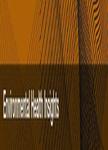版权所有:内蒙古大学图书馆 技术提供:维普资讯• 智图
内蒙古自治区呼和浩特市赛罕区大学西街235号 邮编: 010021

作者机构:Department of Civil Engineering University of Victoria Victoria BC Canada Environment and Regional Development Graduate Program (PGDRA) Universidade Federal de Rondônia (UNIR) Porto Velho Rondônia Brazil Department of Mechanical and Process Engineering ETH Zurich Zurich Switzerland The Polytechnic University of Malawi Chichiri Malawi Division of Data Analysis Planning and Monitoring UNICEF New York NY United States Department of Environment Climate Change and Health (ECH) WHO Geneva Switzerland
出 版 物:《Environmental Health Insights》 (Environ. Health Insights)
年 卷 期:2021年第15卷第15期
页 面:11786302211014400页
学科分类:0830[工学-环境科学与工程(可授工学、理学、农学学位)] 1004[医学-公共卫生与预防医学(可授医学、理学学位)] 1001[医学-基础医学(可授医学、理学学位)] 100402[医学-劳动卫生与环境卫生学] 10[医学]
基 金:University of Malawi UNICEF Natural Sciences and Engineering Research Council of Canada, NSERC
主 题:Drinking water quality Escherichia coli microbial water testing multiple indicator cluster surveys (MICS) plastics waste
摘 要:To monitor safely managed drinking water services, an increasing number of countries have integrated water quality testing for Escherichia coli into nationally-representative household surveys such as the Multiple Indicator Cluster Surveys (MICS). However, plastic waste generated during such water quality testing programs, mostly through the use of pre-sterilized disposable materials, is non-negligible. The objective of this study was to evaluate several re-use protocols for disposable filter funnels used by the MICS water quality test kits. Decontamination and re-use protocols were assessed in centralized laboratory and decentralized field settings and neither yielded positive results. Re-use of 100 mL sterile funnels decontaminated with an alcohol wipe resulted in a higher incidence of false positive results (i.e., positive contamination when processing sterile water), both in the laboratory and field;therefore, a higher proportion of positives tests can be expected if these components are re-used. Further improvements to the decontamination technique and training are needed before material re-use can be reliably adopted. Autoclaving the funnels for re-use is feasible, provided that there is capacity to re-package and distribute funnels in a sterile manner. © The Author(s) 2021.